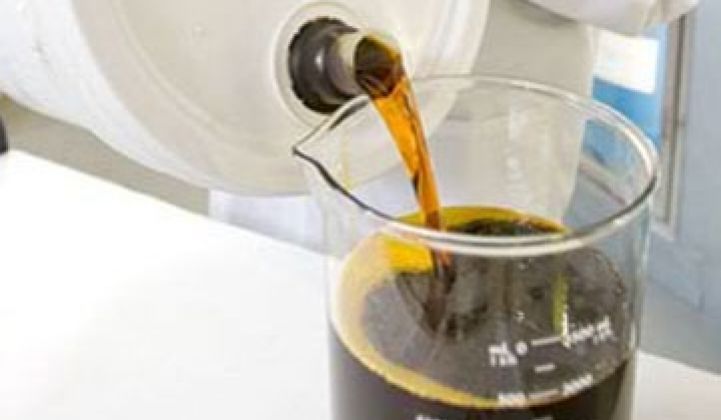Investors have been veering away from biofuels, but the industry is still kicking.
Solazyme, which turns genetically modified algae into oils for fuel and food, announced it has raised $52 million today in a Series D round of financing. Morgan Stanley also became a new investor.
The company grows algae through fermentation; it feeds them sugars in dark, sealed vats. When the time comes, the algae are removed and squished to extract their oils. Most other algae companies grow algae by creating artificial ponds, called bioreactors, and exposing them to sunlight and algae. Sugar costs more than CO2 and sunlight, but photosynthesis is harder to achieve than it may sound. Among other problems, the algae has to be separated from water. Greenfuel Technologies spent $70 million in an effort to build a photosynthesis plant before crashing and burning last year. It recently sold off its intellectual property to a group headed by the Seagram's heirs to make fuel from sewage.
Solazyme actually started as a photosynthesis company before shifting to fermentation. Since then, it has become one of the few algae startups to produce oil in interesting quantities. The company started selling oil to the food and cosmetic industry last year and currently is building a plant to produce jet fuel for the Department of Defense. (With the growing popularity of electric cars, more biofuel companies have shifted the focus to aviation. Don't expect battery-powered airplanes any day soon.) Only a handful of the hundred-plus algae companies currently in operation, though, are concentrating on fermentation. Solazyme recently delivered 1,500 gallons of algae jet fuel to the Navy. That's probably 1,472 more gallons than the rest of the industry combined.
The new $52 million won't allow Solazyme to become a big-league refiner. The company will likely need hundreds of millions to construct a large commercial-scale plant -- as well as plenty of help from established oil producers. Erik Straser of Mohr Davidow Ventures recently told us that one of the reasons the biofuel industry seems to be in a holding pattern is that the large producers have yet to definitively select biofuel partners. Chevron is an investor in Solazyme, a step in that direction, but the oil giant has yet to announce far-ranging production deals with biofuel startups.



